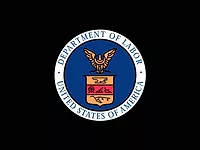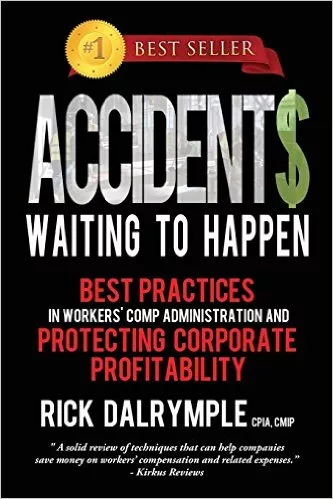U.S. Labor Department Fall Protection Directive Upheld in U.S. Court of Appeals
The U.S. Court of Appeals for the Seventh Circuit rejected a challenge by the National Roofing Contractors Association (NRCA) to the Occupational Safety and Health Administration's (OSHA) December 2010 directive on the use of fall protection in residential construction.
WASHINGTON - The U.S. Court of Appeals for the Seventh Circuit rejected a challenge by the National Roofing Contractors Association (NRCA) to the Occupational Safety and Health Administration's (OSHA) December 2010 directive on the use of fall protection in residential construction.
The directive withdrew an earlier one that allowed certain residential construction employers to bypass some fall protection requirements.
“Fall protection saves lives,” OSHA Assistant Secretary Dr. David Michaels said in a release. “There are effective means available to protect residential construction workers from falls. We applaud the court's decision upholding this updated, commonsense directive.”
Data from the department's Bureau of Labor Statistics estimates that an average of 40 workers is killed each year as a result of falls from residential roofs. One-third of those deaths represent Latino workers, who often lack sufficient access to safety information and protections. Latino workers comprise more than one-third of all construction employees.
“Fatalities from falls are the number one cause of death in construction,” Michaels said. “These deaths are preventable, and we must prevent them.”
NRCA's petition argued OSHA did not follow appropriate rulemaking procedures when it eliminated an option that has been in place for 15 years; acted without any evidence to suggest slide guards are not an effective method for fall protection; and failed to take into account the effect the new rules would have on small businesses. OSHA argued the rule is not a new standard and is, therefore, beyond the reach of an appeal.
The court agreed with OSHA, concluding that the rule's 1999 rewrite and 1995 predecessor amounted to “an exercise of prosecutorial discretion” and not a new standard.
“We were extremely disappointed by the court's decision, even knowing that taking on the government always is a long shot,” NRCA Executive Vice President Bill Good said in a release. “The new OSHA rule now will take effect in just over two months, so we will do our best to help all members prepare. We also hope to meet with OSHA officials to get a better understanding of their enforcement plans. Meanwhile, we encourage all members to let us know of their experiences with the new rule and OSHA enforcement activity.”
OSHA's new directive, Standard 03-11-002, rescinded the Interim Fall Protection Compliance Guidelines for Residential Construction, Standard 03-00-001. Prior to the issuance of this new directive, Standard 03-00-001 allowed employers engaged in certain residential construction activities to use specified alternative methods of fall protection rather than the conventional fall protection required by the residential construction fall protection standard. With the issuance of the new directive, all residential construction employers must comply with 29 Code of Federal Regulations 1926.501(b)(13). Where residential builders can demonstrate that traditional fall protection is not feasible, 29 CFR 1926.501(b)(13) still allows for alternative means of providing protection.
The case was litigated by Lauren Goodman and Heather Phillips from the Division of Occupational Safety and Health in the department's Office of the Solicitor.
Construction and roofing companies have until June 16 to comply with the new directive. OSHA has developed training and compliance assistance materials for small employers and will host a webinar for parties interested in learning more about complying with the standard.
To view the directive and for more information, visit www.osha.gov/doc/residential_fall_protection.html.
Under the Occupational Safety and Health Act of 1970, employers are responsible for providing safe and healthful workplaces for their employees. OSHA's role is to ensure these conditions for America's working men and women by setting and enforcing standards, and providing training, education and assistance.
WASHINGTON - The U.S. Court of Appeals for the Seventh Circuit rejected a challenge by the National Roofing Contractors Association (NRCA) to the Occupational Safety and Health Administration's (OSHA) December 2010 directive on the use of fall protection in residential construction.
The directive withdrew an earlier one that allowed certain residential construction employers to bypass some fall protection requirements.
“Fall protection saves lives,” OSHA Assistant Secretary Dr. David Michaels said in a release. “There are effective means available to protect residential construction workers from falls. We applaud the court's decision upholding this updated, commonsense directive.”
Data from the department's Bureau of Labor Statistics estimates that an average of 40 workers is killed each year as a result of falls from residential roofs. One-third of those deaths represent Latino workers, who often lack sufficient access to safety information and protections. Latino workers comprise more than one-third of all construction employees.
“Fatalities from falls are the number one cause of death in construction,” Michaels said. “These deaths are preventable, and we must prevent them.”
NRCA's petition argued OSHA did not follow appropriate rulemaking procedures when it eliminated an option that has been in place for 15 years; acted without any evidence to suggest slide guards are not an effective method for fall protection; and failed to take into account the effect the new rules would have on small businesses. OSHA argued the rule is not a new standard and is, therefore, beyond the reach of an appeal.
The court agreed with OSHA, concluding that the rule's 1999 rewrite and 1995 predecessor amounted to “an exercise of prosecutorial discretion” and not a new standard.
“We were extremely disappointed by the court's decision, even knowing that taking on the government always is a long shot,” NRCA Executive Vice President Bill Good said in a release. “The new OSHA rule now will take effect in just over two months, so we will do our best to help all members prepare. We also hope to meet with OSHA officials to get a better understanding of their enforcement plans. Meanwhile, we encourage all members to let us know of their experiences with the new rule and OSHA enforcement activity.”
OSHA's new directive, Standard 03-11-002, rescinded the Interim Fall Protection Compliance Guidelines for Residential Construction, Standard 03-00-001. Prior to the issuance of this new directive, Standard 03-00-001 allowed employers engaged in certain residential construction activities to use specified alternative methods of fall protection rather than the conventional fall protection required by the residential construction fall protection standard. With the issuance of the new directive, all residential construction employers must comply with 29 Code of Federal Regulations 1926.501(b)(13). Where residential builders can demonstrate that traditional fall protection is not feasible, 29 CFR 1926.501(b)(13) still allows for alternative means of providing protection.
The case was litigated by Lauren Goodman and Heather Phillips from the Division of Occupational Safety and Health in the department's Office of the Solicitor.
Construction and roofing companies have until June 16 to comply with the new directive. OSHA has developed training and compliance assistance materials for small employers and will host a webinar for parties interested in learning more about complying with the standard.
To view the directive and for more information, visit www.osha.gov/doc/residential_fall_protection.html.
Under the Occupational Safety and Health Act of 1970, employers are responsible for providing safe and healthful workplaces for their employees. OSHA's role is to ensure these conditions for America's working men and women by setting and enforcing standards, and providing training, education and assistance.
Looking for a reprint of this article?
From high-res PDFs to custom plaques, order your copy today!






